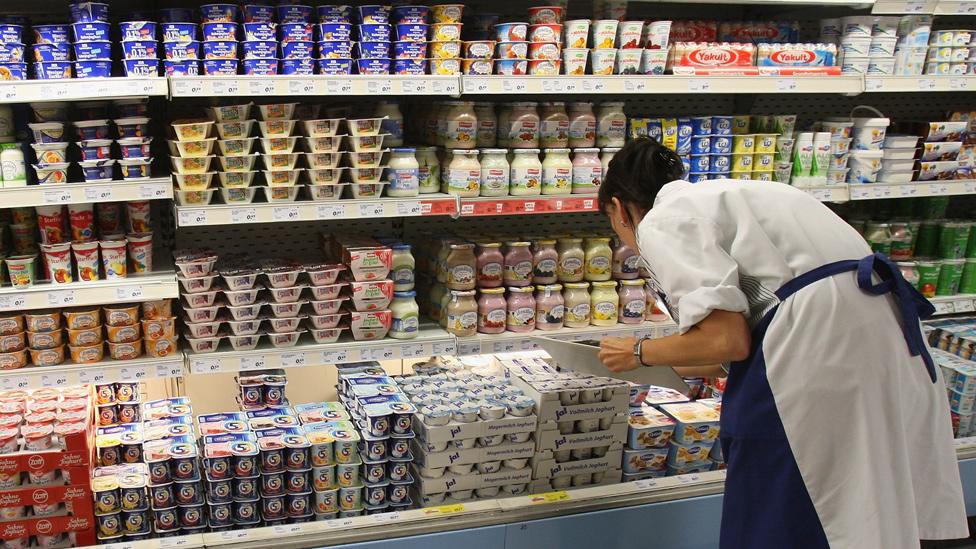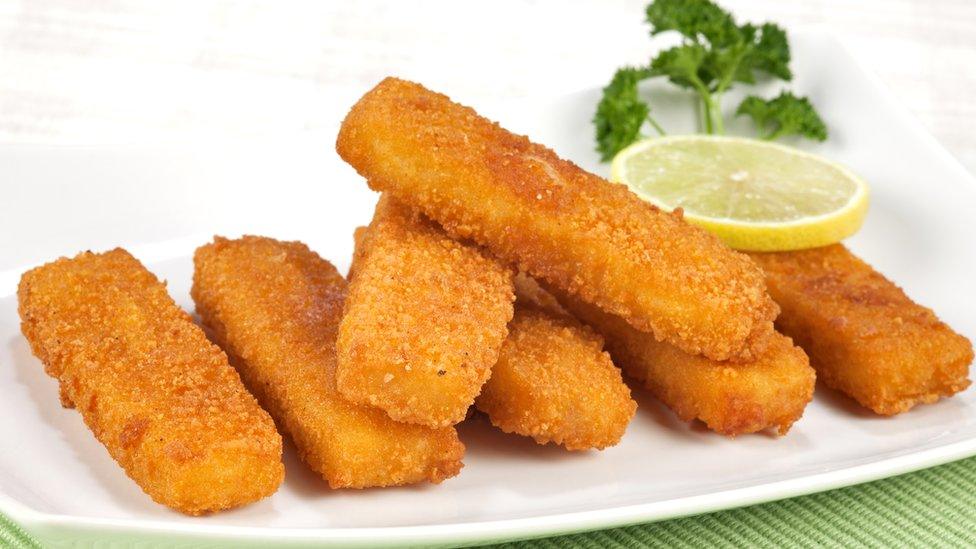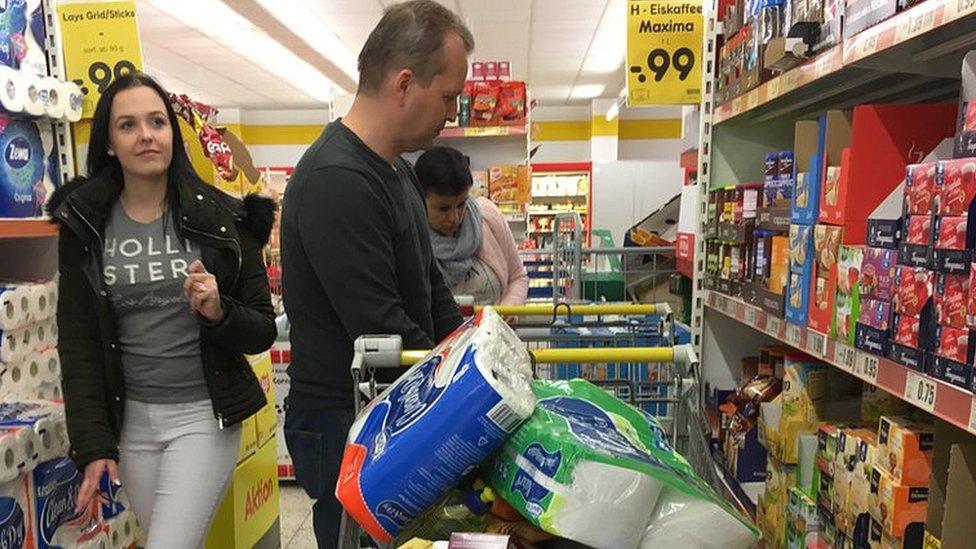New EU tests to tackle 'rip-off' food complaints
- Published

The same brand can taste different elsewhere in the EU
New EU food quality tests need to be strict enough to stop manufacturers selling some brands with inferior ingredients in ex-communist countries, a Euro MP shaping the new rules says.
The EU Commission plans to collect data on a range of foods, so that countries can compare brand quality more easily.
"We have strict safety regulations, but quality is not defined in legislation," said Croatian MEP Biljana Borzan.
Brand quality varies too much across the EU, politicians and consumers say.
Well-known brands of fish fingers, baby food and biscuits are among the foods at the centre of a heated debate.
'Food apartheid'
Last year the prime ministers of the Czech Republic, Hungary, Poland and Slovakia - known as the Visegrad Group - told their EU partners it was "unacceptable that our consumers are treated differently and in a discriminatory way".
Slovak Prime Minister Robert Fico even threatened to boycott food imports from some EU countries if the EU failed to tackle the "dual quality" issue.
Bulgaria's Prime Minister Boyko Borisov described the problem as "food apartheid" in the EU, likening it to the old racism of South Africa.
Food producers however argue that they tailor their brands to suit local tastes, and that is why the ingredients sometimes differ.

Read more on this topic:


Bahlsen has now standardised the butter content of its biscuits
Ms Borzan told the BBC that "dual quality food is a really serious political issue - it shows the EU single market doesn't fully function".
She added: "Changing the packaging is not enough; our goal should be to change product quality."
Some brands have already standardised their ingredients for all EU markets, such as Germany's Hipp baby food and Bahlsen biscuits.
New EU scrutiny
On Wednesday, the European Commission said it was updating the EU's Unfair Commercial Practices Directive, external, to help prevent inferior-quality brands being marketed in some countries.
EU Justice and Consumers Commissioner Vera Jourova said the Commission would also launch a new food-testing methodology next month, so that national authorities could reliably compare brand quality from country to country.
The plan is to determine a "product of reference" for 20 to 30 brands initially. Next year the standardisation is to be expanded to non-food goods, such as washing powder.
As part of its "New Deal for Consumers", the Commission said the new legislation would "make explicit that it may be illegal to market products as being identical in several EU countries, if their composition is significantly different", external.
"Business operators are free to market and sell goods with different composition or characteristics, tailoring their products to local consumer preferences or taking into account the need to respond to different trends. Products under the same brand may exceptionally have different characteristics.
"However, a substantially different composition in identically branded goods can be a source of concern when those products are marketed in a way that has the potential to mislead the consumer," it said.
- Published19 July 2017

- Published17 May 2017
